Music
Our philosophy & culture
The school's intent for Music is to provide a comprehensive, inclusive, and stimulating curriculum that inspires all children to develop a love for music, explore their creativity, and achieve in music. We offer a broad and balanced music curriculum, in line with the National Curriculum for Music. This includes a range of activities that cover listening, performing, composing, and appraising across different musical genres and traditions. We teach the music curriculum through Music Express.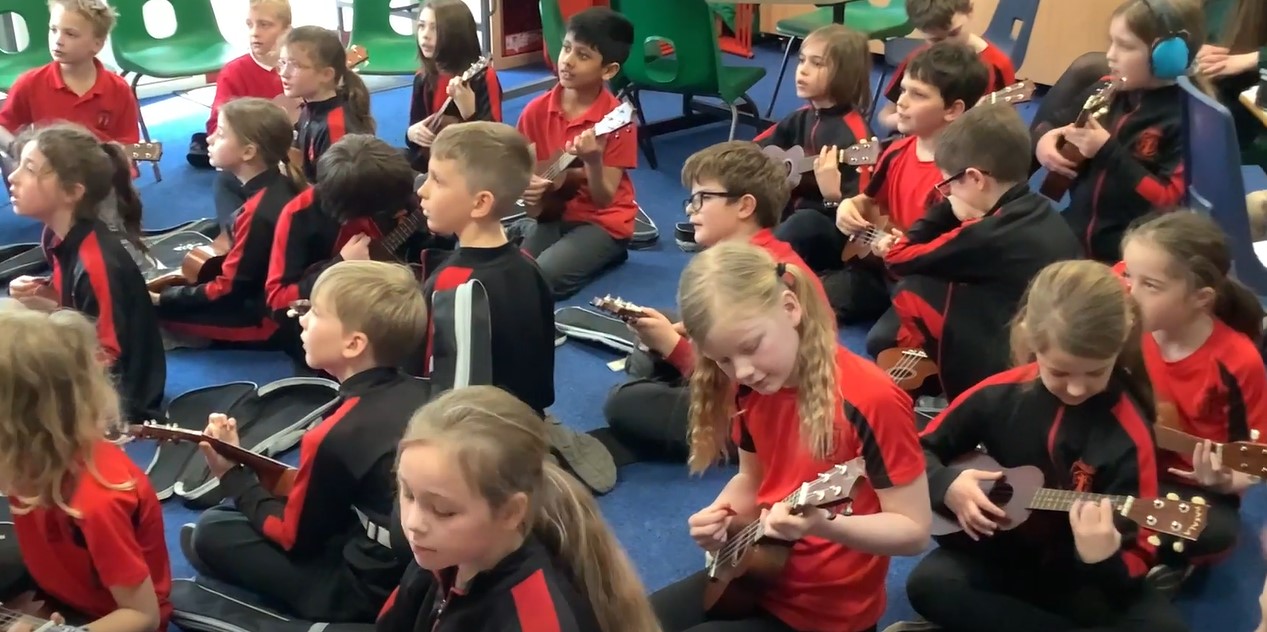
Progression and Continuity
The school ensures that children have a structured and progressive musical journey throughout their time in primary school. This involves building on prior knowledge and skills, offering opportunities for personal development, and nurturing individual talents, ultimately enabling children to transition smoothly to secondary music education.
Cultural Awareness and Appreciation
The school emphasises the importance of cultural awareness and appreciation within music education. It seeks to expose children to a range of musical traditions, including those from different ethnicities and cultures, reflecting the diverse society in which we live. This promotes understanding, empathy, and respect for others.
Inclusion and Equal Opportunities
The school values inclusion and strives to ensure that every student, regardless of their background or ability, has access to high-quality music education. Different learning styles, abilities, and individual needs are considered when planning and delivering music lessons, activities, and events.
Enhancement of Other Areas of Learning
The school recognises the cross-curricular benefits of music education and actively seeks to enhance children' learning in other subjects, such as language development, coordination, and social skills. Music is integrated creatively into wider school life, performances and celebrations.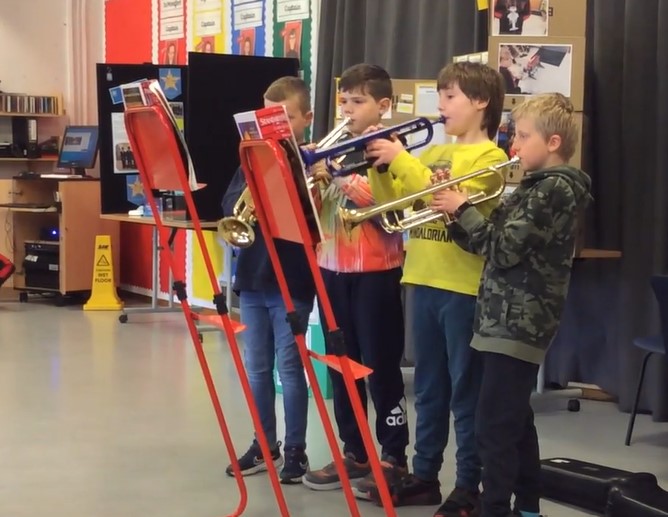
How children learn Music
To achieve the desired musical outcomes and deliver an outstanding music provision, the school implements a range of strategies and practices:
Quality Teaching and Learning
As well as class music teaching the school employs some expert music teachers who are highly skilled in their subject to introduce the children to instruments and singing. They deliver engaging lessons that cater to different learning needs, employing a variety of teaching methods that motivate and challenge children. Teachers use assessment for learning techniques and provide feedback to support children' progress.
Specialist Resources and Facilities
The school invests in resources and facilities to facilitate effective music teaching and learning. This includes musical instruments, technology, recordings, and appropriate spaces for rehearsals and performances. The school ensures that resources are well-maintained and accessible to all children.
Enrichment Opportunities
The school provides a wide range of enrichment opportunities, such as instrumental lessons, ensemble participation, and visits from professional musicians. These opportunities enhance children' musical experiences, allowing them to deepen their understanding and passion for music.
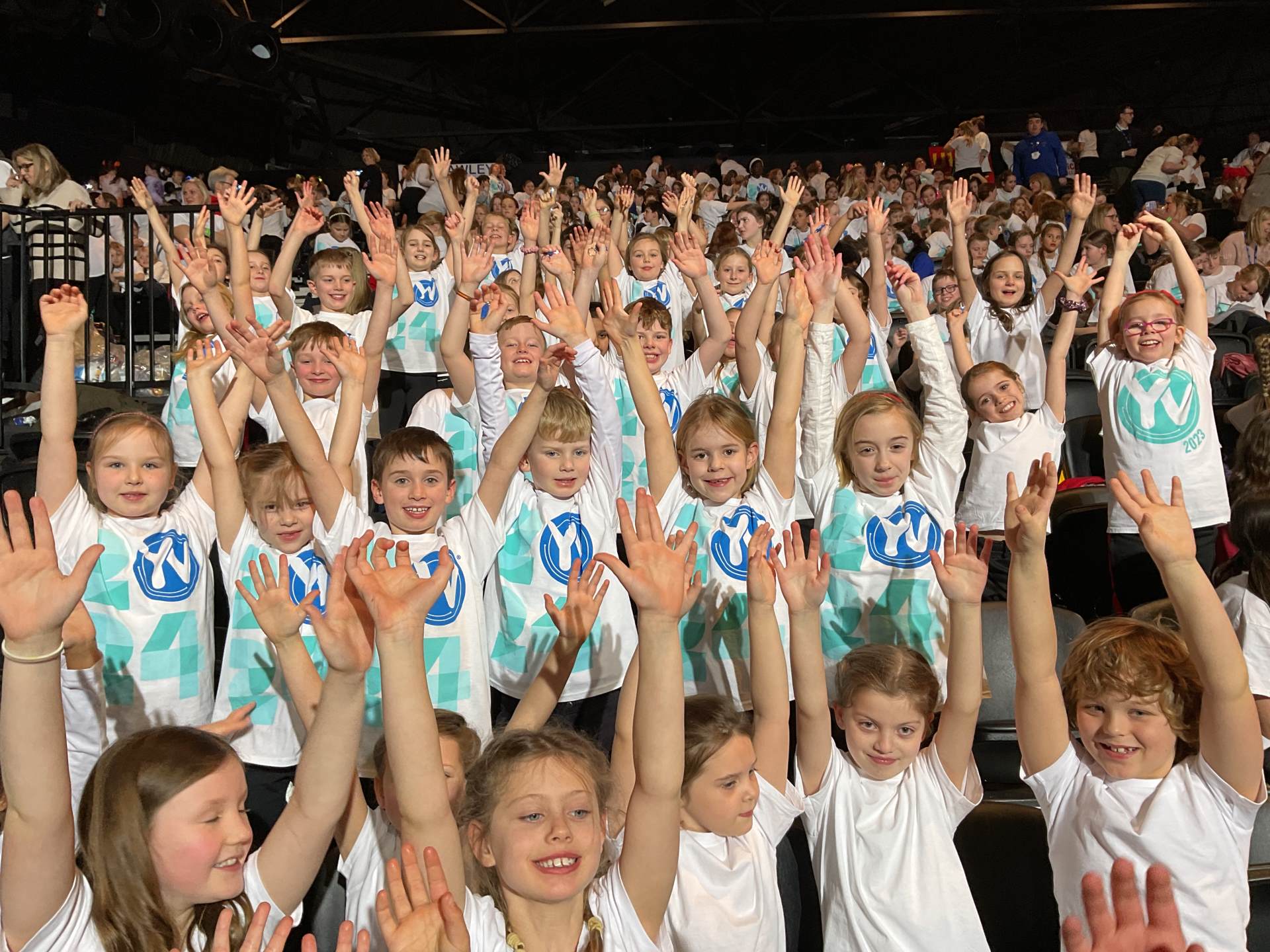
Partnerships and Community Engagement
The school actively seeks partnerships with external music organisations, local musical groups, and the wider community to enhance the richness of children' musical experiences. Collaborative projects, concerts, and performances involving external musicians enrich the overall music provision.
Progress Tracking and Assessment
The school tracks and assesses children' progress in music. Regular formative assessments, self-reflection, and peer feedback are used to monitor and evaluate individual progress. The school also provides opportunities for children to showcase their musical achievements, ensuring that progress is celebrated and recognised.
The impact of the Music curriculum
The music provision in the school leads to a range of positive impacts on children' development and education:
Musical Skills and Knowledge
Children acquire a broad range of musical skills, knowledge, and understanding, as evidenced by their performance, composition, and appraising abilities. They demonstrate an understanding of the elements of music, including rhythm, melody, harmony, and dynamics.
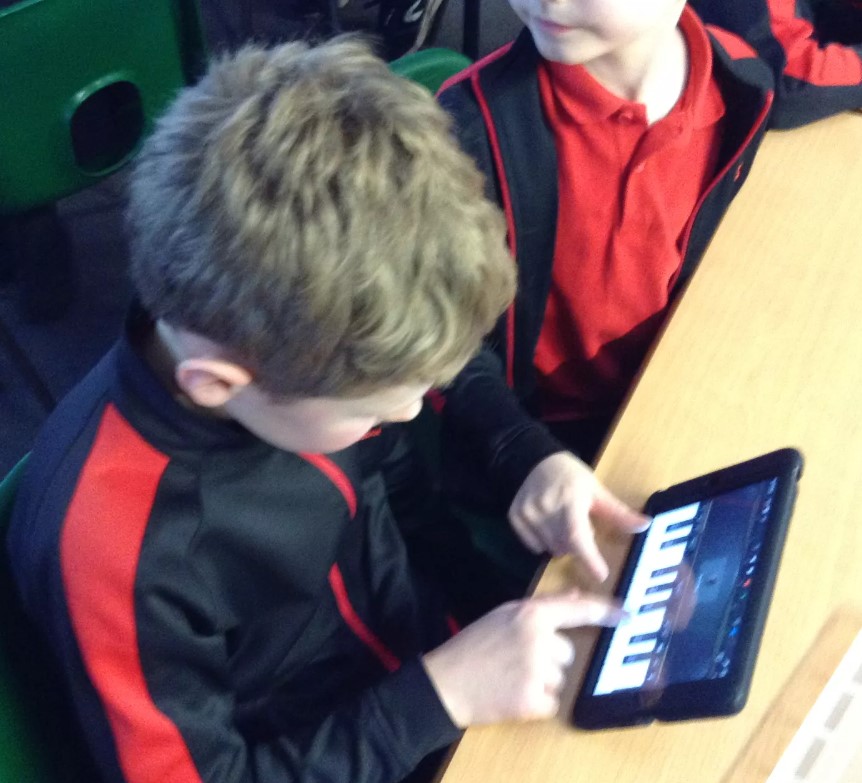
Confidence and Self-expression
The school's music provision fosters children' confidence and self-expression. Children are encouraged to perform individually and as part of ensembles, both within the school and in external settings. The experience of performing and sharing their musical talents improves their self-esteem and resilience.
Cultural Awareness and Appreciation
Children demonstrate an appreciation and respect for the diversity of musical cultures both within and outside the United Kingdom. They showcase an understanding of cultural contexts and traditions, promoting a sense of belonging and fostering a broader understanding of the wider world.
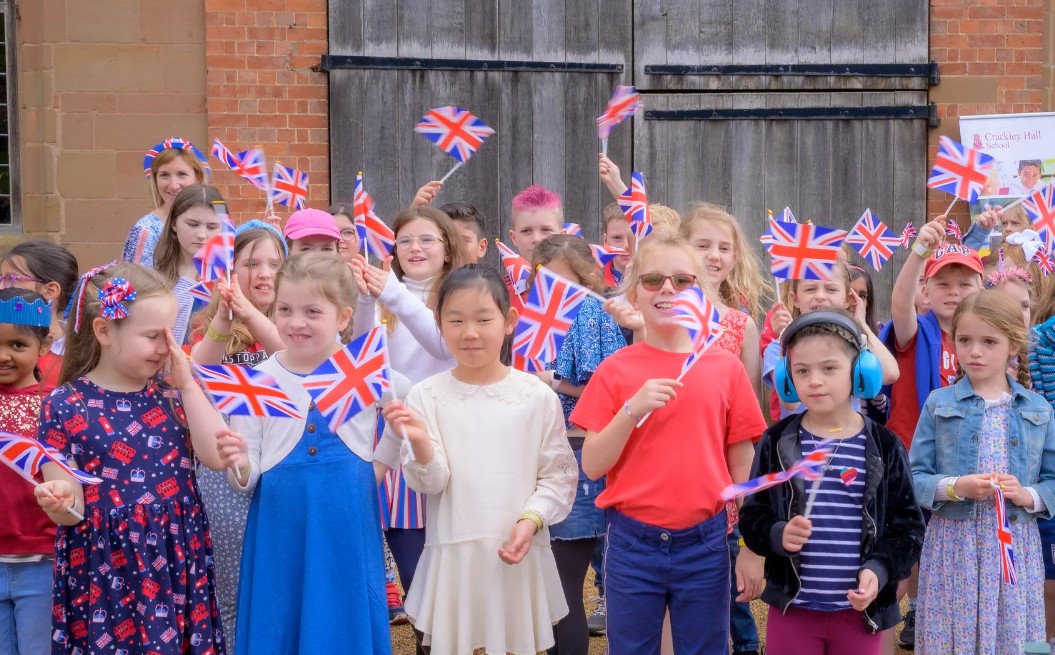
Well-rounded Education
The music provision enhances children' overall educational experience by developing important transferable skills such as teamwork, discipline, perseverance, and problem-solving. Children apply these skills not only in music but also in their academic pursuits and other aspects of school life.
In conclusion, we aim to provide a comprehensive, inclusive, and stimulating musical experience for all children. By incorporating these excellent standards, the school ensures that music contributes significantly to children' personal development, cultural understanding, and well-rounded education.

